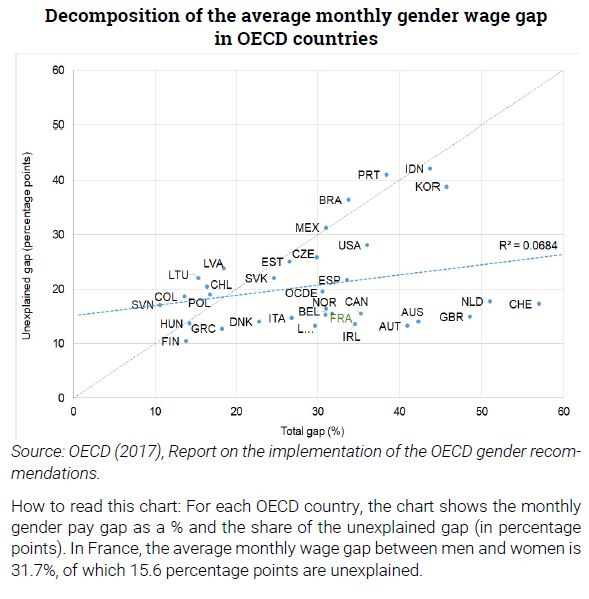Trésor-Economics No. 251 - Gender budgeting in France
Despite the efforts made over the past decade in many countries to promote equality between women and men, inequalities persist, particularly in the labour market. Some public policies have a differentiated impact on men and women and can create and amplify inequalities, or on the contrary reduce them. Gender budgeting consists of explicitly taking into account the objective of equality between women and men in the budgetary process.
Despite the efforts made over the past decade in many countries to promote equality between women and men, inequalities persist, particularly in the labour market and in education. In France, the average monthly wage for women is around 32% lower than that of men. While about a quarter of the wage gap is explained by differences in hours worked, with women working more part-time than men, and another quarter by the fact that women work in lower-paying sectors than men, half of the gap remains unexplained and could be the result of discrimination, according to the OECD (see chart).
Some public policies have different repercussions for men and women and may cause or even heighten inequality or, conversely, reduce it. Gender budgeting consists in explicitly taking the goal of gender equality into account in the fiscal process. It implies having a gender-based perspective during the different phases of this process and analysing the direct and indirect ramifications of public expenditure and revenue on the respective situation of men and women.
Gender budgeting can be rolled out in different manners, either by individually examining, measure by measure, the consequences by gender of fiscal policies, or by assessing the global impact by gender of all the measures taken for a given year.
Like its neighbours (Germany, Belgium, Spain and Italy), France has taken action in terms of gender budgeting and wage policy at both local and central government levels. These measures could be bolstered by the publication, in January 2019, of the opinion from the Haut Conseil à l'Égalité entre les femmes et les hommes (French High Council for Gender Equality) which advocates making gender equality a rule for fiscal decision-making.
